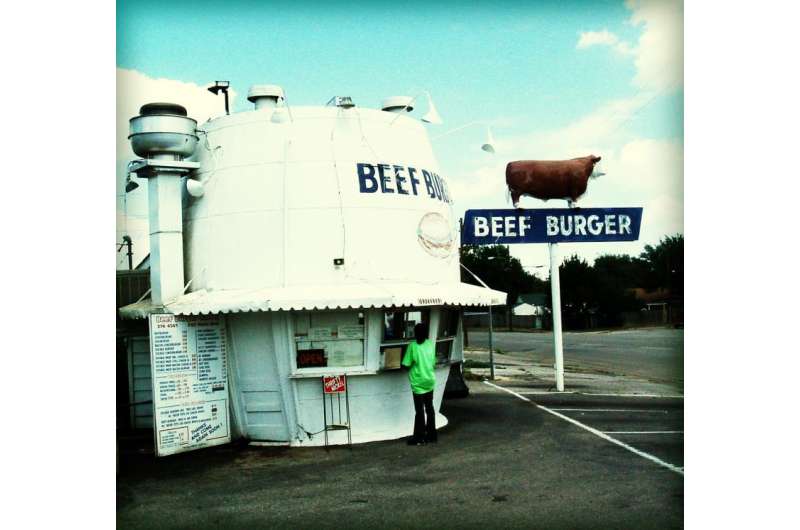Changing our diet to save the planet

Global food consumption and production is seriously unbalanced. In the UK alone we threw away 4.4 million tonnes of "avoidable" food waste in 2015 – that is food that was edible before it was discarded – which equates to £13 billion worth of food wasted, or £470 per household. Meanwhile, nearly 800 million people globally are chronically undernourished.
The world population is projected to grow to 9 billion people by the middle of this century. We face a huge challenge in finding ways to adequately feed this rapidly growing population whilst also protecting the natural environment.
However it is not just the amount of food production and the balance of its distribution that are key concerns for sustainably feeding the planet. We also need to think about what we are eating.
Presently western diets are characterised by a high proportion of animal foodstuffs, and this is a problem not just for our health, but for the environment. The Hunger Project has cited climate change as one of the hidden sources of hunger. In doing so it highlights how food production and the environment are inextricably linked.
Meat and dairy production requires more land, more water and has higher greenhouse gas emissions than plant based alternatives. As the global population continues to grow, we will need to be ever more prudent with the resources that are required for food production. We must consider whether the proportion of resources currently devoted to meat and dairy production is optimal given the numbers needing to be fed and the environmental impacts such diets can cause.
Already China has pledged to reduce its meat consumption by 50% by 2050 through changing its government-issued dietary regulations. In many European countries, however, there is more resistance to regulation. The German Environment Ministry's plan to no longer serve meat at official functions was met with criticism earlier this year. In the UK, the government has a clear preference for encouraging individuals to make the right choices as opposed to regulating them.
So how can people be encouraged to switch to a more planet friendly diet? And how can social marketers and policy makers encourage a dietary transformation of the population when it seems so many people struggle with, or are resistant to change? Research in the field of environmental psychology suggests that individuals will switch to a meat-reduced diet, but this change needs to be self-regulated and go through a process of several stages before it sticks. At each of these four stages of change an individual needs to overcome different barriers to progress to the next stage.
At the first stage, individuals have a stable but unsustainable behaviour pattern and do not see any need to change. For those in this stage, the initial barrier is to understand why their current behaviour is harmful and to recognise that by changing it they could ameliorate this harm.
At the second stage, individuals are contemplating changing their behaviour but haven't yet changed what they are doing and may be unsure how to do so. They need to determine a specific course of action that facilitates their goals. In relation to meat reduction, this could involve reducing portion sizes, only eating meat at one meal or having meat free days.
At the third stage, individuals are trialling their new behaviour, but are still highly susceptible to relapses. To progress to the final stage, they must come up with effective implementation plans to ensure their new behaviours will be sustainable in different contexts.
Should individuals reach the fourth and final stage, their behaviour should have built up some resistance to relapses and is therefore more likely to have an impact.
The research tells us that targeted campaigns designed to reduce meat consumption which address the specific stage of change for an individual, are more effective than traditional informational campaigns. At the University of Bath, our research is looking at which social marketing techniques are most effective at each stage of change. In particular, we are looking at what social factors are significant in driving change through the different stages. This is particularly important given the social or collaborative aspects of dietary behaviours: we might eat breakfast with our family, lunch with our colleagues and have dinner at a restaurant with friends. Each of these situations brings different social rewards and pressures which are likely to impact on our choices.
Understanding these contexts is therefore of utmost importance when designing behaviour change campaigns. If we can better understand how individuals are likely to respond to different campaigns and policy measures to change their diets, then we can help social marketers and policymakers design measures that are least likely to encounter resistance and most likely to encourage the desired behaviour changes.
The food system is inherently complex and reducing meat consumption is just one example of how consumer habits will need to change if we are to alleviate world hunger and sustainably feed the planet. If we can arm policy makers and change agents with the right tools to encourage a shift to different behaviours, then hopefully we can enable a smoother transition to a sustainable food system.
Provided by University of Bath



















